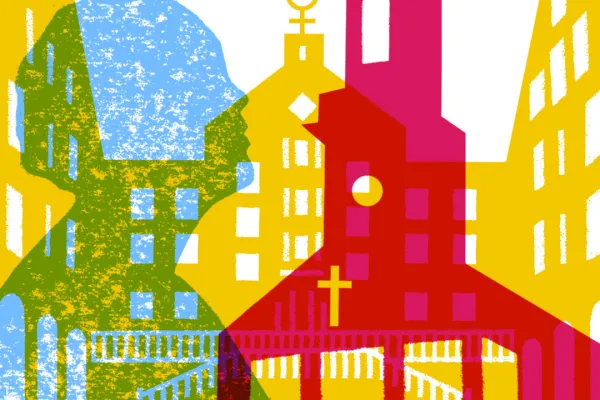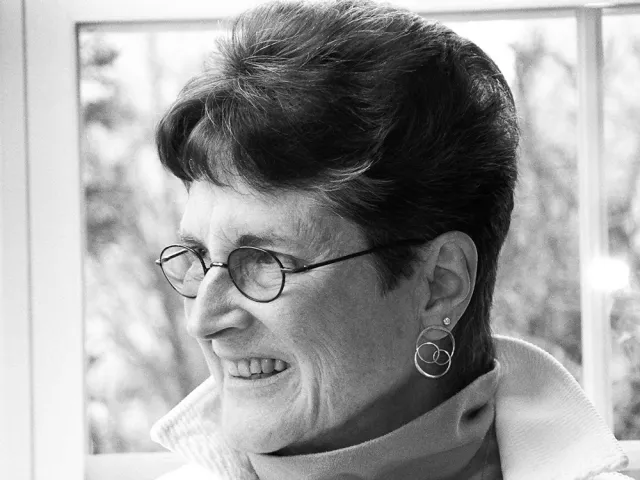Lyn Gillespie Brakeman ’60: ‘The Power of Me’
Alum News

Published June 11, 2019
I grew up in Manhattan, and my first school experience was in a private girls school. It never occurred to me there was any other way to learn, to freely exercise the best of my brain muscle to its fullest in an atmosphere of intellectual and emotional safety.
That is, it never occurred to me until my parents joined the exodus from the city to the Connecticut suburbs. I was 12. I lost friends, city and school. No one in their right mind moves a girl at 12 in the first place, and especially not a girl like me who had no boobs and imagined herself to be pathologically short and shy. Thrust into a public junior high school culture, frothing with teenage-belonging angst, I felt doomed. And to think, my parents had chosen this town because “the schools were so good.”
The worst part about this new school was that there were boys in it. Boys were everywhere; they multiplied on demand. I’d heard of boys, of course, but had never experienced them at close range and in a classroom. Boys were loud, teasing, always testing their hormonal prowess. It wasn’t that boys were smarter than girls but that they raised their hands first whether they had the answer or not. Apparently, every girl had to have one—a boy, that is—in order to fit in. At least I no longer wore an undershirt; still, I prayed madly and consulted the Bible—for dating advice, boobs and yes, God.
My high school career was salvaged by a best friend who had boobs and taught me about sex; by a boy named Bill who had also moved from a big city, was crushingly handsome and felt as insecure as I did; by my own academic fervor; and, strangely, by the Bible, where I discovered that girls and boys were created in God’s own image—equally divine.

The Rev. Lyn Gillespie Brakeman ’60 is a retired Episcopal priest, author of three books, including the memoir God Is Not a Boy’s Name: Becoming Woman, Becoming Priest, and a blogger.
I nurtured a secret longing for the safety-in-learning experience I’d had. In college, Smith provided that. As a well-practiced class grind, I excelled—even though at times I imagined myself having a nervous breakdown unnoticed. I didn’t pick apples or study on Mountain Day but went to Rahar’s with classmates to drink beer, laugh and get just drunk enough to sleep for 12 much-needed hours.
At Smith I was back with girls, realizing anew the power of women together—and the power of me. Smith didn’t “make me a lesbian,” as an anxious father whose daughter wanted to go to Smith once asked me, but it did make me a feminist. I fell passionately in love with ideas in any field, including that of my own mind. I was becoming a woman fully alive—fully.
Smith took me beyond academics. I learned to think, to ask questions without fear and, most of all, to use my imagination and intuition alongside my intellect. I dated boys at their schools, not mine. (Still, a frat party is a phenomenon no girl should ever expose herself to, unless it’s a matter of life and death—or desperate love.)
I learned that spiritual wisdom was found in books and in the flesh, and that everyone had a story worth telling. Mine was deeply spiritual. I was discovering God within me. All I needed was the right rite. Smith’s heartthrob chaplain, Richard Unsworth, guided me to the Episcopal Church liturgy through which my early urgings toward priesthood were confirmed.
When the college or alumnae association asks whether Smith should remain a college for women only, I vote YES—without reservation.
Summer 2019 Smith Alumnae Quarterly
Have a story about how Smith has influenced your life? Send your 600-word essay to saq@smith.edu for consideration.
Illustration by Lucy Jones